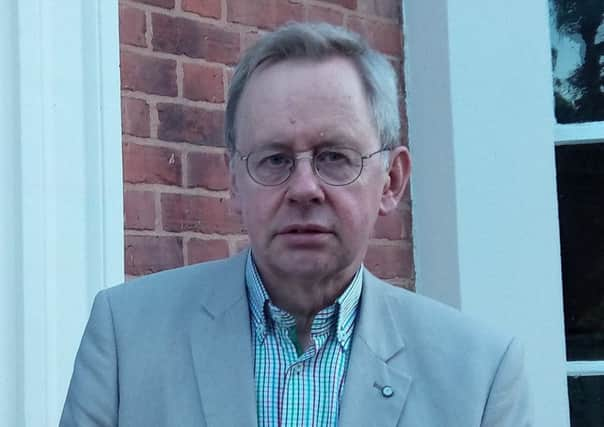Legacy inquests: Too much focus on state is an injustice to terror victims


As matters stand, any proposals for dealing with the past must duly be made in compliance with the ECHR case law, as currently understood, on the basis that there must be privilege of treatment to be accorded to the investigation of all the deaths involving ‘agents of the state’.
But to the majority of victims who have suffered so terribly at the hands of perpetrators over the entire Troubles period such privilege of treatment may leave them with a deep sense of injustice.
Advertisement
Hide AdAdvertisement
Hide AdThis may be a major impediment to achievement of agreement on a way forward.
How can any proposals coming out of the Stormont negotiations achieve any reasonable degree of consensus if they afford such privilege of investigatory treatment for deaths involving agents of the state, over and above the investigation of all the other deaths, injury destruction and trauma caused by terrorists?
Perhaps, (but we do not really know!) a ‘police force of the past’ is on the ‘negotiation list’ at Stormont when talks resume there in the near future. But there would be many problems with any such proposal:
• Apparently it might be staffed from personnel from outside Northern Ireland. It is claimed that any such body would have a statutory duty of ‘balance’ (whatever that might mean) but it seems to me that its greatest problem would be its lack of understanding.
Advertisement
Hide AdAdvertisement
Hide Ad• And who would offer the training to such personnel and what perspectives on the past would such trainers have?
• How can one ensure that the investigators take due account of the critical pressures of life in Northern Ireland during the years of the Troubles, often entailing that the priority was the protection of life over and above the enforcement of the law?
• How can one ensure the investigators duly appreciate that while investigatory procedures and techniques (in all jurisdictions) have advanced in recent years, investigation into the past must not rush to condemn actions, or failure of action, against more modern standards?
These and many more important questions arise to such extent that there must be full public consultation before any proposals are formed. There is a great danger, that if a ‘deal’ is cobbled together at Stormont before the end of this month, then all the questions that should be raised will receive at best cursory treatment and that any promised consultation will be formulaic as the key decisions will already have been taken in secret by the negotiators.
Advertisement
Hide AdAdvertisement
Hide AdEveryone should be involved in frank and open discussion before policy is formed. In particular, the following merit consideration:
• the Belfast Agreement’s principles of ‘parity of esteem’ and ‘mutual respect’;
• Respect for rule of law – but accepting that there are circumstances where apparent failure of members of the security forces to investigate crime had to take second place to the preservation of the peace;
• Ensuring that the process is protected from manipulation by those who would seek to legitimise, on any side, their acts of terrorism;
Advertisement
Hide AdAdvertisement
Hide Ad• Thoughts on an alternative or accompanying process of ‘truth recovery’ or ‘fact finding’: a history collection process or ‘History Commission’ (with legislative privilege) under the supervision of independent, respected historians might be an option.
There is a matrix of legitimate interests and perspectives to be taken into account. It is in everyone’s interest to find the ‘right’ solution or at least one that causes the minimal amount of harm to any section of the community.
This is one of the outstanding issues of the Stormont talks process, stalled because of the general election. But the solution must be in the delicate balance of law, policy and all legitimate interests. There are several problems.
Firstly, perhaps no solution can emerge because, despite the ‘peace process’, there is no general cross-community agreement as to the true cause of the Troubles and as to the legitimacy of the security measures adopted during the course of the Troubles. The slogan ‘truth and justice’ may be proclaimed but it may mean very different things amongst those who proclaim it.
Advertisement
Hide AdAdvertisement
Hide AdSecondly, those involved in the talks process appear unwilling or unable to contemplate any alternative to inquests. Working within Article 2, surely there must be other ways forward, without leaving any section of the community under a sense of grievance? For instance, the Council of Ministers of the Council of Europe was considering this ten years ago and apparently was prepared to consider a more proportionate response in terms of expenditure and other resources. We should re-visit those proposals.
Perhaps that failure of imaginative policy arises from the format of the talks process: it is not is it really the best vehicle for framing policy and devising solutions? Generally reform and new structures and processes in any area of public life emerge from a more transparent process and consultation involving people and organisations across society.
So the troubling question, with which I end, is whether this talks process, carried out in secret by a small group of politicians and senior civil servants is the right machinery to achieve any good result?
• Neil Faris is a Belfast lawyer who does advisory work in public and commercial law.
Advertisement
Hide AdAdvertisement
Hide AdHis first article is online, here: ’Article 2 of the ECHR and the right to life’
The second article is here: ‘It will be hard to tackle our troubled past if state killings are given privileged scrutiny’
The third article is here: ‘Human rights convention appears to be silent on investigations into terrorism’